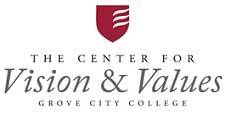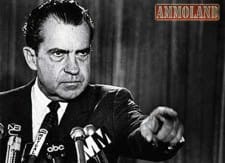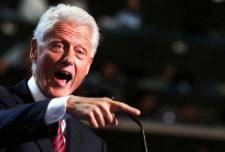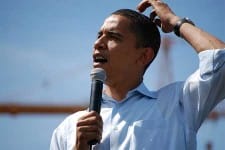With Dr. Gary Scott Smith

Editor’s note: The “V&V Q&A” is an e-publication from The Center for Vision & Values at Grove City College. In this latest edition, professor of political science and executive director of the Center—Dr. Paul Kengor—interviews the chair of the history department at Grove City College and fellow for faith and the presidency with The Center for Vision & Values—Dr. Gary Scott Smith—on his brand-new book, “Religion in the Oval Office” (Oxford University Press, 2015).

Grove City, PA –-(Ammoland.com)- Dr. Paul Kengor: Dr. Smith, though it has a different title, this book, “Religion in the Oval Office,” is essentially a sequel to your 2006 book, “Faith and the Presidency.”
But the focus is different—11 times different, to be exact. Tell us which 11 presidents you’ve covered in this book—and remind us of the presidents you covered in the previous book.
Dr. Gary Scott Smith: My first book discusses George Washington, Thomas Jefferson, Abraham Lincoln, Theodore Roosevelt, Woodrow Wilson, Franklin Roosevelt, Dwight Eisenhower, John F. Kennedy, Jimmy Carter, Ronald Reagan, and George W. Bush. My new book profiles John Adams, James Madison, John Quincy Adams, Andrew Jackson, William McKinley, Herbert Hoover, Harry Truman, Richard Nixon, George H. W. Bush, Bill Clinton, and Barack Obama. My two books focus on the American presidents whose personal religious convictions were the strongest or the most important in determining their policies. Kennedy’s faith had little impact on his political philosophy or policies, but he is included because of the major role his Catholicism played in the 1960 presidential campaign.
Kengor: Which faith story of the 11 presidents will probably be most surprising to readers?
Smith: The faith of Andrew Jackson may surprise readers the most. Because Jackson was a brawler, a duelist, and a gambler who is often seen as a hooligan, he seems to be an unlikely candidate to have a devout faith. However, after age 40, he read the Bible daily, attended church faithfully, and frequently expressed robust religious convictions in letters to close friends and family. Substantial evidence indicates that his religious convictions significantly affected the way he governed and influenced some of his policies.
Kengor: How are the faith stories/journeys of John Adams and John Quincy Adams alike and different?
Smith: Both Adamses were deeply interested in religious questions, read widely in biblical and theological literature, and worshipped in churches of varied denominations. They belonged to the same Congregational Church in Quincy, Massachusetts, which became Unitarian in 1825 the year before John died. However, John Quincy was more personally devout and orthodox than his father. While John denied the deity of Jesus, John Quincy labeled the nature of Jesus a “speculative question” and refused to take sides on Christ’s divinity. Moreover, John Quincy served for many years as a vice president of the American Bible Society, which was founded in 1824 to promote the distribution and reading of the Scriptures, a position his father would not have been invited to hold.
Kengor: I’ve always been intrigued by Richard Nixon’s faith. What did you find?

Smith: Nixon’s faith is a conundrum. He was raised in a devout Quaker home, claimed to have a conversion experience as a teenager, had close relationships with Billy Graham and Norman Vincent Peale, and held worship services in the White House. Throughout his life Nixon repeatedly professed to be a Christian, frequently attended worship services, and often prayed. Nevertheless, his immoral actions cause many to consider Nixon’s claim to be a Christian disingenuous. Nixon’s displays of piety and use of religious rhetoric appear to have been carefully contrived to project the godly persona many Americans want to see in their presidents rather than a major impetus for his behavior, decision-making, and policies. Some of Nixon’s statements and deeds described in my book hint that a spark of genuine Christian faith may have resided deep within him.
Kengor: Tell us about Bill Clinton’s faith. He is often portrayed in a mocking way as walking to and from church with a Bible under his arms in between decidedly unholy moments with Monica Lewinsky. I’m sure the picture is much more complicated.

Smith: Clinton’s faith is also hard to decipher. Like Nixon, he professed to have had a “born again” experience as a youth. He frequently testified that his faith was important to him, attended church regularly as president, had an impressive knowledge of the Bible, and quoted scriptural passages and cited biblical principles as much as any other chief executive. Clinton argued that personal religious convictions had an important role to play in the public square, and his beliefs influenced his policies on numerous matters including religious liberty, racial reconciliation, welfare reform, and international peacemaking.
However, despite his seemingly sincere testimony to his Christian commitment and his public displays of religiosity, he engaged in tawdry actions, especially his sexual affairs and lying, which violated biblical moral standards. After his relationship with Lewinsky became public, and then after his impeachment, Clinton sought redemption publicly and privately by meeting with Christian counselors and working to bring reconciliation between nations. Because of the glaring incongruity between his profession of faith and practice, it is difficult not to conclude that he used religion to win votes, justify his policies, and try to create a positive image.
Kengor: We could do an entire Q&A just on Barack Obama’s faith, but I’ll limit the questions to a couple. How formative was the Rev. Jeremiah Wright to Obama becoming a Christian?
Smith: Wright had a powerful impact on Obama’s faith. Wright’s sermon, “The Audacity to Hope,” led directly to Obama’s decision in 1988 to become a Christian and soon to be baptized at Trinity Church in Chicago to affirm his faith publicly. Between 1988 and 2004 Obama attended Trinity Church fairly often, and Wright’s preaching and friendship with Obama deeply influenced the future president.
Kengor: I find it fascinating that Barack Obama, in coming out in support of gay marriage in 2012, pointed to Jesus and the Golden Rule as the reason for supporting the redefinition of traditional Biblical marriage. What can you tell us about that?

Smith: Obama announced in May 2012 that he had decided that gay marriage was “consistent with his Christian beliefs.” He explained that Christ’s sacrifice “on our behalf” and “the Golden Rule” convinced him that gays and lesbians should have full civil rights, including marriage. This position caused much conflict with religious conservatives, including many black evangelicals, who insisted that it contradicted biblical teaching.
Kengor: Final question: What’s the most important thing that you want people to take away from this book?
Smith: I want readers to understand that faith matters. It significantly shapes the thought and actions of many Americans. Few of their biographers have recognized how powerfully their faith affected our chief executives. Only a handful of scholars have comprehended how much the religious convictions of presidents helped shape their policies. My book provides numerous examples, including Madison’s championing of religious liberty; John Quincy Adams’s efforts to fund roads, canals, and educational institutions and promote diplomacy; William McKinley’s decisions to declare war against Spain and take control of the Philippines; Herbert Hoover’s quests to reform prisons and defend civil liberties; Harry Truman’s approach to the Cold War and decision to recognize Israel; Barack Obama’s policies on poverty; and the crusades of several presidents to advance world peace.
–Gary Scott Smith is a fellow for Faith and Politics at the Center for Vision and Values. He is the author of Faith and the Presidency: From George Washington to George W. Bush (Oxford University Press, 2009) and Religion in the Oval Office: The Religious Lives of American Presidents (Oxford University Press, 2011).
The post Religion in the Oval Office – with Dr. Gary Scott Smith appeared first on AmmoLand.com.
